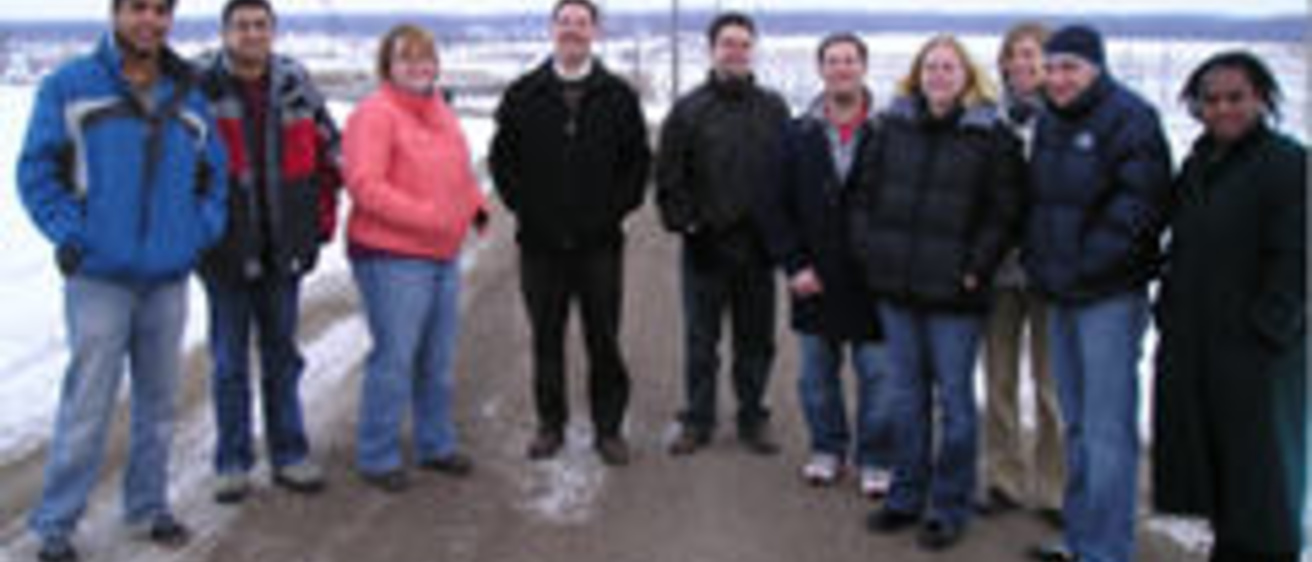Students of local development policy in the United States quickly learn that the practice is better characterized by pragmatic responses to interregional competition than by allusions to economic theory or abstract principles. Therefore, it is essential that students learn firsthand from those in the trenches about how they market their locality, package incentives, and evaluate their successes and failures. Students in Dr. Richard Funderburg’s Economic Development Policy course gain such experience.
This semester, economic development policy students visited local economic development officials at three eastern Iowa developments undergoing rapid change. With the Executive Director of Washington Economic Development Group as their guide, students explored the renovation of Washington’s downtown businesses, toured the proposed site for a cluster of biofuel plants, and visited the area surrounding a new casino in Riverside, which is expected to dramatically change that city’s character in coming years. During the class’s second trip, students toured an enterprise zone in Cedar Rapids, where they learned from the Vice President of Economic Development about the city’s successful attraction and retention of large manufacturing companies and particularly about the expansion plans of a high technology firm’s local engineering operations. The third trip included a visit with the Associate Director of the University of Iowa’s Technology Innovation Center, a business incubator and research park that promotes domestic inventions and other innovations into marketable products and services through so-called third wave, or demand-side, targeted economic development efforts.
Pictured from left to right are graduate students Nikhil Sikka, Vijayant Rajvanshi, Christina Kuecker, GPURP alumnus and Executive Director of Washington Economic Development Group Ed Raber, and students Evan Barrett, Luke Juran, Krista Ehm, Kara Homan, Nathan Kraus, and Nkechi Onwuameze.
